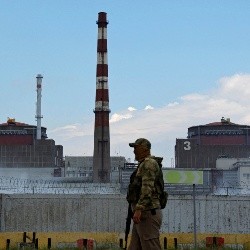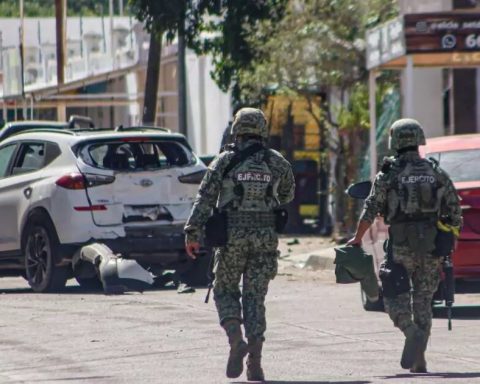USA denounced on Sunday the “cynical obstructionism” of Russia after Moscow prevented the adoption of a joint declaration on the nuclear non-proliferation treaty (NPT) after lengthy international negotiations at the United Nations.
“After weeks of intense but productive negotiations, Russia decided on its own to block the consensus on an outcome document” at the end of the NPT review conference, State Department deputy spokesman Vedant Patel said.
And this with the sole objective of “blocking the language that simply recognizes the serious radiological risk in the nuclear power plant of Zaporizhia in Ukraine“, occupied by the Russian army, he said in a statement.
The central Zaporizhiathe largest in Europe, was seized by Russian troops in early March, shortly after Moscow invaded Ukraine on February 24, and is close to the front lines in the country’s southeast.
kyiv and Moscow have accused each other of carrying out bombings in the vicinity of the nuclear plant, and its operator warned on Saturday of risks of radioactive leaks and fires.
The 191 signatories of the NPT -which has been in force since 1970 with the aim of preventing the proliferation of nuclear weapons, promoting complete disarmament and fostering cooperation in the peaceful use of nuclear energy- met at the headquarters of United Nations in New York from August 1 for a scheduled review every five years.
But Russia blocked the adoption of a joint statement on Friday, denouncing “certain blatantly political paragraphs” in the final draft text.
“Despite Russia’s cynical stonewalling, the fact that all other parties supported the outcome document demonstrates the essential role of the treaty in preventing nuclear proliferation,” Patel said.
Austria, a neutral and non-nuclear country, on Saturday condemned the attitude of the main powers during the talks, and not only Russia.
“Contrary to the disarmament commitments enshrined in the NPT, the five nuclear-armed states – the United States, France, China, the United Kingdom and Russia – are increasing or perfecting their arsenals,” the Austrian government said in a statement.
Vienna underscored the lack of “perceivable willingness to comply with previously unfulfilled contractual obligations” on the part of the five veto countries in the UN Security Council.
kg













